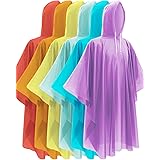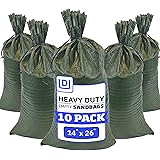Understanding Different Heating Sources
Types of Alternative Heating Sources
When my furnace broke down last winter, I dived headfirst into the world of alternative heating sources. There are various options like electric space heaters, propane heaters, wood stoves, and even solar heating systems. Each type has unique qualities that can really suit different situations and preferences.
Electric space heaters are super popular due to their easy use and availability. They can be plugged in wherever you want, giving you warmth without having to overhaul your entire heating system. Just be aware of their limitations, especially when it comes to heating larger spaces.
Then there are propane heaters which can be really handy, especially if you’re looking for something more portable. I remember one camping trip when my propane heater saved the night during a chilly evening in the woods. It’s essential to ensure proper ventilation when using these to avoid harmful fumes.
Safety Precautions to Consider
Safety should always be a top priority when using alternative heating sources. Understanding how to use each properly can make a world of difference. For instance, carbon monoxide is a silent intruder; installing detectors in your home can alert you to danger before it becomes a problem.
I learned the hard way—when using heaters, especially those that burn fuel, make sure your space is well-ventilated. I had a scare one night when I didn’t leave a window cracked, and let me tell you, it’s not just uncomfortable; it’s dangerous.
Regular maintenance checks are non-negotiable. Keeping up with routine checks not only prolongs the lifespan of your heating source but also keeps your home safe from potential hazards. Trust me, a little upkeep now saves a lot of headache later!
Setting Up Your Heating Source Correctly
Choosing the Right Location
Choosing where to set up your alternative heater can feel overwhelming. But trust me, it’s crucial for safety and efficiency. I always look for a place away from any flammable materials—this includes papers, curtains, and even furniture!
Also, ensure that your heating source has enough space around it. I used to be guilty of crowding my space heater with stuff because I thought it looked neat. But then I learned that giving it room to breathe can prevent overheating and fires.
== > What if ... Get a FREE Subscription to PREPARE
It’s wise to think about the airflow in the area too. Placing a heater in a closed-off space can lead to uneven heating and increase the risk of a fire hazard. Just make sure it’s in an open area, ideally a room where you spend the most time during winter.
Mind Your Power Usage
Alternative heating sources can sometimes put a strain on your electricity usage. I learned this the hard way when my first winter using a space heater led to a shocking power bill. Be mindful of how much energy your heater consumes, as some are more efficient than others.
Consider using a programmable thermostat to better manage your heating instead of cranking the heater all day long. This has helped me save some money while keeping my abode cozy without burning my wallet!
If you can, invest in energy-efficient models. I eventually switched to an Energy Star rated heater, and I noticed a substantial difference in my power bills. Not only do they save you money long-term, but they’re also better for the environment.
Staying Alert and Monitoring Your Heating Source
Routine Checks and Inspections
This might sound tedious, but regularly checking your heating source should be a part of your routine. I try to set a reminder each month to inspect my heaters. Checking for wear and tear can prevent unexpected disasters from happening.
Make sure to inspect the power cords, the heater itself, and even the connections. If things don’t look right, it’s time to call in a professional. I used to ignore my gut feeling about certain appliances, but a little prevention goes a long way!
If you have a fuel-burning heater, check the flue system as well. Even if you think everything looks fine, those sneaky blockages can be hidden away. I once found out the hard way that not all problems are visible at first glance!
Get Preparedness and Self-Reliance Tips. Subscribe Now!
Understanding Emergency Procedures
Being prepared for emergency situations is key. Have a plan in place in case something goes south. I always keep an emergency exit route in mind, especially in a room where I’m using a heater.
It helps to have functional fire extinguishers in your home. The best part is that you don’t have to be a firefighter to use them! I made it a point to have one in the room where I use my heater most often. A few seconds can make the difference between a small incident and a disaster.
Knowing how to shut off your heating source safely in case of an issue is another vital step. Always read the manual! It can be a lifesaver in times of stress. I sometimes just shove mine into a drawer and forget, but I’ve learned it’s much smarter to keep it accessible for quick referencing.
Educating Your Family
Teaching Safety to Everyone in the Home
It’s super important to make sure everyone in the home knows how to use your alternative heating source safely. From my experience, I found that involving the whole family in discussions about heating safety helps everyone take it more seriously.
I sat down with my kids one winter evening and showed them how the space heater worked. It was a great opportunity to discuss why it’s crucial to respect the heater and its hot surfaces. Kids get curious, and I’ve learned that it’s best to educate them than to have an unwelcome accident.
Make a fun little ‘safety pledge’ with your family. Sometimes, turning safety rules into a game helps everyone remember better. It’s all about making safety a part of our everyday life without it feeling like a chore.
Keeping Communication Open
Communicating about heating safety isn’t just a one-time chat. I make sure we regularly share any concerns or experiences regarding our heating methods. If something feels off with the heater, I encourage everyone to voice it right away.
Creating an open line of conversation helps to ensure safety at all times. I often remind my family to report any strange noises or smells around the heaters because those can be big red flags.
Use communication tools, such as a family calendar or a shared message board, to keep everyone informed about when the heaters need checks or maintenance. Keeping everyone in the loop can prevent issues before they even arise!
Frequently Asked Questions
1. What are alternative heating sources?
Alternative heating sources include any methods other than the traditional central heating systems. This can be space heaters, wood stoves, electric blankets, or even solar heating systems. They can be great options, especially when seeking supplemental warmth or in case your primary system fails.
2. How can I ensure safety when using a space heater?
To ensure safety, always keep your space heater at least three feet away from anything flammable. Never leave it unattended and always turn it off before going to sleep or leaving the room. Regular checks for frayed cords or unusual sounds are also essential.
3. How often should I inspect my heating appliances?
I recommend inspecting your heating appliances at least once a month. Regular checks can lead to early detection of issues, preventing potential accidents or costly repairs down the line.
4. What should I do if I smell gas when using a propane heater?
If you smell gas, immediately turn off the heater and leave the area. Avoid flicking switches or making any sparks. Once safely outside, call your gas company to report the issue. Don’t take any chances; safety first!
5. Can I use alternative heating sources while I sleep?
While it might be tempting to keep a heater on at night, it’s generally not recommended unless it’s specifically designed for overnight use and comes with features like a tip-over switch or an automatic shut-off. Always prioritize safety while you sleep!






